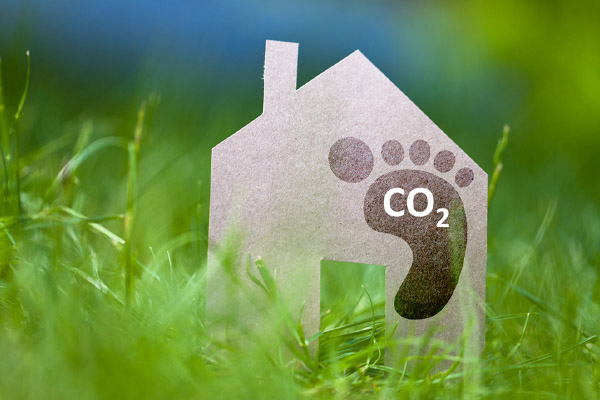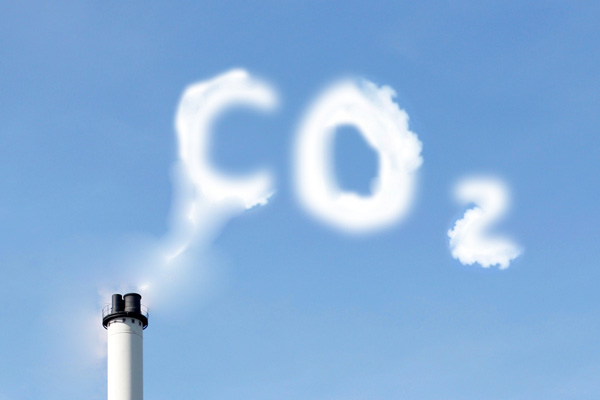Alternative Energy: How Biofuels Reduce Carbon Footprints

Alternative energy has reached the height of popularity. This unfortunately didn’t happen by accident. Over the past 100 years, we’ve learned that some of our practices led us to global warming and other unexpected outcomes, which require effective tactics to lower our carbon footprints.
It’s no surprise that biofuels have entered the conversation. These liquid plant-based fuels are not only an effective alternative energy source, but they are also a form of renewable energy, so they’ll never run out in the future.
With that said, it’s time to learn how biofuels can help us reduce our carbon footprints. To truly see how switching to EcoBlend Bioheat® Fuel Oil in Long Island can protect the environment, keep reading to learn more about:
- The Definition Of A Carbon Footprint
- How EcoBlend Bioheat® Heating Oil Reduces Greenhouse Gas Emissions
- How EcoBlend Bioheat® Fuel Oil Burns Cleaner Than Home Heating Oil
- ULSHO: High BTUs And Almost Zero Particulate Emissions
Find out more about these important topics below.
Carbon Footprint: An Accurate Definition Of An Often-Used Phrase
Table of Contents
- 1 Carbon Footprint: An Accurate Definition Of An Often-Used Phrase
- 1.1 Types of Emissions: Direct or Indirect Carbon Emissions
- 1.2 How EcoBlend Bioheat® Heating Oil Reduces Greenhouse Gas Emissions
- 1.3 How EcoBlend Bioheat® Home Heating Oil Burns Cleaner Than Traditional Heating Oil
- 1.4 How Will EcoBlend Bioheat® Fuel Oil Help Lower Your Carbon Footprint?
- 1.5 ULSHO: High BTUs & Almost Zero Particulate Emissions
- 1.6 Conclusion
- 2 Use Hart Home Comfort’s EcoBlend Bioheat® Heating Oil For Your Heating Needs
According to Wikipedia, a carbon footprint is a combination of the total GHG emissions, otherwise known as greenhouse gas emissions, caused by a product, service, place, event, organization, or individual.
Overall, your carbon footprint is the equivalent of the total amount of carbon dioxide expressed by each of the possibilities mentioned above.
In many ways, it’s very difficult to pinpoint and specifically calculate a complete carbon footprint. But Wright, Kemp, and Williams specifically use a version of the following definition:
A carbon footprint is measured by combining the total methane and CO2 emissions of a certain population, activity, or system. They take into account all relevant sources, storage, and sinks within the temporal or spatial boundaries of activity, system, or population.
Types of Emissions: Direct or Indirect Carbon Emissions

Measuring accurate carbon emissions is difficult to achieve because there are multiple types of CO2 emissions in need of tracking. They include the following:
- Direct Carbon Emissions – Direct carbon emissions are also known as Scope 1 emissions. They are derived directly from sources that deliver or produce products or services. Examples include gas-burning stoves, personal vehicles, and burning fuel on a job site.
- Indirect Carbon Emissions – This type of carbon emissions, also known as Scope 2 or Scope 3 emissions, are derived from upstream or downstream sources. Indirect upstream carbon emissions include materials transportation and production facility waste produced outside. An indirect downstream emission includes waste or product transportation and product-related emissions.
How EcoBlend Bioheat® Heating Oil Reduces Greenhouse Gas Emissions
According to Energy.gov, the DOE in the United States is fully committed to the promotion of clean alternative energy use. These sources of energy are known as biofuels, and they are abundant, affordable, and readily available to use throughout the nation.
Even more important, energy consumption in the United States is on the rise. By 2030, the US is expected to consume 50% more energy than it currently uses. By incorporating EcoBlend Bioheat® fuel oil into your life, you’ll cut down on your personal GHG emissions as you do your part to protect the environment.
How will biofuels help reduce GHG emissions? Some important facts about this renewable fuel are as follows:
- Hart Home Comfort’s EcoBlend Bioheat® fuel oil is a much cleaner burning fuel than traditional heating oil. It’s fully biodegradable, which results in creating fewer emissions of greenhouse gases.
- EcoBlend Bioheat® heating oil is currently the one liquid heating fuel with the ability to reduce carbon emissions. The ultimate goal is to achieve net-zero carbon emissions by 2050, and the heating industry is ahead of schedule.
- EcoBlend Bioheat® home heating oil uses renewable agricultural byproducts to create an effective liquid heating fuel. Industry experts use previously used tallows, fats, and cooking oils, soybean oil, inedible corn oil, canola oil, and other varying recycled oils to deliver fuel with reduced greenhouse gas emissions.
- Hart Home Comfort’s EcoBlend Bioheat® fuel oil specifically reduces the number of mercury emissions, particulate matter, CO2, and SOx emissions by a wide margin. Soon enough, B100 grade biofuel will produce zero CO2 emissions by mid-century.
How EcoBlend Bioheat® Home Heating Oil Burns Cleaner Than Traditional Heating Oil
The interesting thing about EcoBlend Bioheat® fuel oil, and the reason it’s so effective, is because it’s completely biodegradable and it’s also non-toxic as well.
When you compare this to traditional heating oil for your home, it produces fewer pollutants including hydrocarbons, sulfur dioxide, carbon monoxide, and particulates. It even produces fewer nitrogen oxide emissions, but by a lesser margin.
How Will EcoBlend Bioheat® Fuel Oil Help Lower Your Carbon Footprint?
By burning a cleaner heating fuel, you’ll receive the following benefits:
- Nitrogen oxide emissions reduction
- Carbon dioxide emissions reduction
- Sulfur emissions reduction
- Fewer greenhouse gas emissions
- Longer-lasting boilers and furnaces, leading to less landfill waste
Call Hart Home Comfort to switch to EcoBlend Bioheat® fuel oil in Long Island and improve your carbon footprint today.
ULSHO: High BTUs & Almost Zero Particulate Emissions
The acronym ULSHO stands for ultra-low sulfur heating oil. You may not realize it, but sulfur content is one of the main culprits in creating greenhouse gases.
By Hart Home Comfort developing a much cleaner type of alternative energy, businesses and residents can precipitously cut down on their carbon emissions and lower their carbon footprints.
Some critical facts about ULSHOs include:
- It doesn’t require installing a new heating system or paying outrageous added costs.
- ULSHO produces 40 times less soot.
- It is developed using 99% less sulfur.
- It produces 97% less airborne emissions.
- Ultra-low sulfur heating oil has as much as 30% fewer NOx emissions.
- It has over 90% less ash buildup.
- It contains 15 ppm sulfur content compared to 2000 ppm sulfur content.
Conclusion
By now, you undoubtedly understand the power of biofuels as an effective alternative energy source. This plant-derived fuel already lowers CO2 emissions by a wide margin. And by 2050, Hart Home Comfort’s aim is to eliminate carbon emissions altogether by achieving net-zero emissions.
Are you ready to make this change? Are you ready to claim ownership of the environment and protect the earth for future generations?
Please get in touch with Hart Home Comfort as soon as possible. Let us know that you’re ready to join the fight and begin heating your home using EcoBlend Bioheat® heating oil in Nassau County, Suffolk County, and Queens, New York. This clean-burning alternative energy source is affordable, efficient, and the only cost-effective way to immediately reduce your carbon output right away.
Use Hart Home Comfort’s EcoBlend Bioheat® Heating Oil For Your Heating Needs
 Hart Home Comfort is proud to provide homeowners in Nassau County, Suffolk County, and Queens, New York with a greener and cleaner solution in the form of EcoBlend Biodiesel. This is ultra-low sulfur and low carbon heating oil that is blended with 100% biodiesel.
Hart Home Comfort is proud to provide homeowners in Nassau County, Suffolk County, and Queens, New York with a greener and cleaner solution in the form of EcoBlend Biodiesel. This is ultra-low sulfur and low carbon heating oil that is blended with 100% biodiesel.
EcoBlend Bioheat® Fuel doesn’t require costly furnace modifications allowing homeowners to use their existing equipment while making the switch to cleaner fuel. Call Hart Home Comfort today to learn more about EcoBlend Bioheat® Heating Oil and join us in reducing carbon emissions today!
For any questions about what Hart Home Comfort can do for you, give us a call today. Click here to contact us now or call us at (631) 667-3200 to find out more!